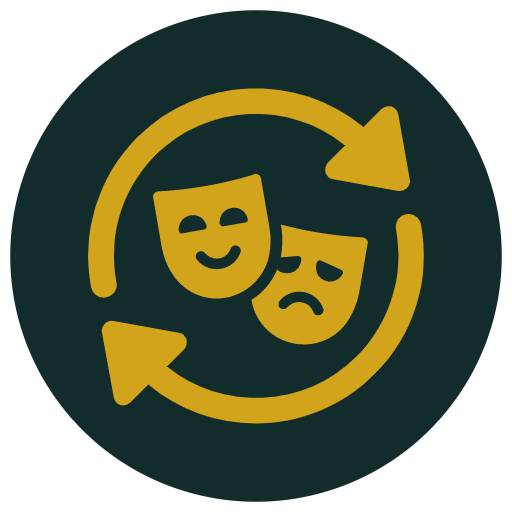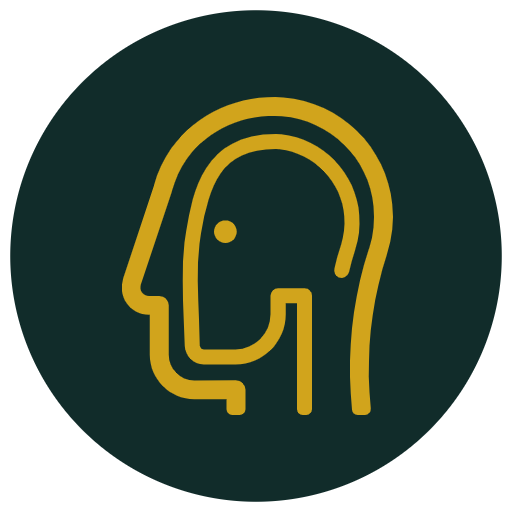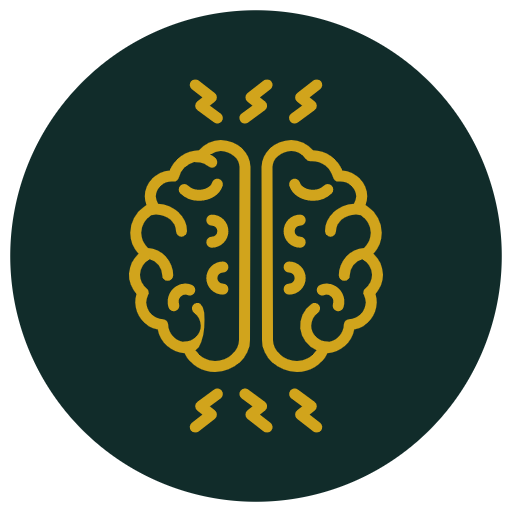Behavioral Health is just as important as physical health. Struggling with a psychological disorder can make it difficult to get out of bed, exercise, take care of yourself, and focus on your physical health. Moreover, behavioral health disorders can affect your moods in debilitating ways.
You may experience extreme panic or anxiety in certain situations. You may have overwhelming fear or intrusive thoughts. You could struggle to maintain a positive mindset. Behavioral Health treatment programs combine a variety of approaches to help you optimize your psychological health. In many cases, treating your behavioral health can also improve your physical health. That’s especially true when you’re seeking treatment for addiction as a co-occurring behavioral health disorder.
Long-term substance abuse is correlated with an increased risk of anxiety, paranoia, and depression. It’s not always easy to determine whether the substance abuse caused the behavioral health disorder or the psychological issue that led someone to self-medicate with substances. But addiction often occurs alongside other behavioral health disorders.

Mood Disorders include Major Depressive Disorder (MDD) or Depression, Bipolar Disorder, Seasonal Affective Disorder, and Cyclothymic Disorder.

Anxiety Disorders include Generalized Anxiety Disorder (GAD), Social Anxiety, and Phobias.

Personality Disorders include Paranoid, Schizoid, Antisocial, Borderline, Avoidant, and Narcissistic Personality Disorders.

Psychotic Disorders include Schizophrenia, Brief Psychotic Disorder, Delusional Disorder, and Substance-Induced Psychotic Disorder (for example, Meth Psychosis).

Eating Disorders include Anorexia, Bulimia, Binge Eating Disorder, and Pica.

Trauma-Induced Disorders include Post-traumatic Stress Disorder (PTSD), Acute Stress Disorder, Adjustment Disorders, and Disinhibited Social Engagement Disorder.

Substance Use Disorder occurs when a person becomes dependent on using illicit drugs or misusing pharmaceutical medications.
There are many treatment options for mental illness. Because there are so many causes of mental illness, there are various approaches to treatment.
Some influence your brain chemistry. Others give you tools for managing your behavior. Many behavioral health treatment options address multiple aspects of your psychological condition to give you the best chances of living a meaningful, fulfilling life.
The primary types of treatment for behavioral health disorders include psychotherapy, medication, lifestyle changes, and holistic therapies.
Psychotherapy is a broad term that covers a variety of treatment approaches to behavioral health. It often involves talking with a counselor or therapist, uncovering the causes and triggers of psychological issues, and finding methods for coping with the complications of mental illness.
Many people are able to relieve symptoms of their mental illness through psychotherapy as a primary treatment. Different therapists use various tools to tailor their treatment plans to the individual. Patients may undergo psychotherapy treatment in an individual, family, or group setting.
Solution-focused therapy allows clients to concentrate on their strengths so that they can harness them to reach their goals. This type of treatment requires a great deal of support from the therapist. But all types of psychotherapy require cooperation from the patient.
The therapist will help the client become more aware of their inherent skills and proficiencies so that they can become more confident in managing their behavioral health issues or addictions. Solution-focused therapy helps clients become motivated to identify what they want out of life and create ongoing meaning throughout their journey.
Medications are often used in conjunction with psychotherapy treatment to help people with certain behavioral health disorders. Antidepressants, anti-anxiety medications, mood stabilizers, and antipsychotic medications are often prescribed as treatments for people with various behavioral health disorders.
What works for one person may not work for you, though. Everyone’s body and brain chemistry is different. You should work closely with a psychiatrist to ensure that you’re taking a dose and type of medication that works well for your illness and produces few side effects.
We also offer evidence-based approaches to behavioral health treatment, such as psychotherapy. Our goal is to help our clients achieve personal growth and develop the skills that are necessary for them to live rewarding lives.
To learn more about our programs, call 866-951-1824!
Deanna Crosby is a Licensed Marriage and Family Therapist (LMFT) with over 20 years of experience working with clients in recovery. Her expertise has catapulted her into the spotlight. Featured on several episodes of the Dr. Phil Show as a behavioral health expert, DeAnna is a routine contributor for NBC News, The Huffington Post, Elle Magazine, MSN, Fox News, Yahoo, Glamour, Today, and several other prominent media outlets.
After receiving her bachelor’s degree from the University of California in Irvine, Crosby did postgraduate work at Centaur University where she graduated at the top of her class with a CAADAC certification in Centaur’s chemical dependency program. Following her time at Centaur, Crosby received her Master of Counseling Psychology degree from Pacifica Graduate Institute, where she also attained a Doctoral Degree in Depth Psychology.
Accredited by:
New Method Wellness
We firmly believe that the internet should be available and accessible to anyone, and are committed to providing a website that is accessible to the widest possible audience, regardless of circumstance and ability.
To fulfill this, we aim to adhere as strictly as possible to the World Wide Web Consortium’s (W3C) Web Content Accessibility Guidelines 2.1 (WCAG 2.1) at the AA level. These guidelines explain how to make web content accessible to people with a wide array of disabilities. Complying with those guidelines helps us ensure that the website is accessible to all people: blind people, people with motor impairments, visual impairment, cognitive disabilities, and more.
This website utilizes various technologies that are meant to make it as accessible as possible at all times. We utilize an accessibility interface that allows persons with specific disabilities to adjust the website’s UI (user interface) and design it to their personal needs.
Additionally, the website utilizes an AI-based application that runs in the background and optimizes its accessibility level constantly. This application remediates the website’s HTML, adapts Its functionality and behavior for screen-readers used by the blind users, and for keyboard functions used by individuals with motor impairments.
If you’ve found a malfunction or have ideas for improvement, we’ll be happy to hear from you. You can reach out to the website’s operators by using the following email juanita@newmethodwellness.com
Our website implements the ARIA attributes (Accessible Rich Internet Applications) technique, alongside various different behavioral changes, to ensure blind users visiting with screen-readers are able to read, comprehend, and enjoy the website’s functions. As soon as a user with a screen-reader enters your site, they immediately receive a prompt to enter the Screen-Reader Profile so they can browse and operate your site effectively. Here’s how our website covers some of the most important screen-reader requirements, alongside console screenshots of code examples:
Screen-reader optimization: we run a background process that learns the website’s components from top to bottom, to ensure ongoing compliance even when updating the website. In this process, we provide screen-readers with meaningful data using the ARIA set of attributes. For example, we provide accurate form labels; descriptions for actionable icons (social media icons, search icons, cart icons, etc.); validation guidance for form inputs; element roles such as buttons, menus, modal dialogues (popups), and others. Additionally, the background process scans all of the website’s images and provides an accurate and meaningful image-object-recognition-based description as an ALT (alternate text) tag for images that are not described. It will also extract texts that are embedded within the image, using an OCR (optical character recognition) technology. To turn on screen-reader adjustments at any time, users need only to press the Alt+1 keyboard combination. Screen-reader users also get automatic announcements to turn the Screen-reader mode on as soon as they enter the website.
These adjustments are compatible with all popular screen readers, including JAWS and NVDA.
Keyboard navigation optimization: The background process also adjusts the website’s HTML, and adds various behaviors using JavaScript code to make the website operable by the keyboard. This includes the ability to navigate the website using the Tab and Shift+Tab keys, operate dropdowns with the arrow keys, close them with Esc, trigger buttons and links using the Enter key, navigate between radio and checkbox elements using the arrow keys, and fill them in with the Spacebar or Enter key.Additionally, keyboard users will find quick-navigation and content-skip menus, available at any time by clicking Alt+1, or as the first elements of the site while navigating with the keyboard. The background process also handles triggered popups by moving the keyboard focus towards them as soon as they appear, and not allow the focus drift outside of it.
Users can also use shortcuts such as “M” (menus), “H” (headings), “F” (forms), “B” (buttons), and “G” (graphics) to jump to specific elements.
We aim to support the widest array of browsers and assistive technologies as possible, so our users can choose the best fitting tools for them, with as few limitations as possible. Therefore, we have worked very hard to be able to support all major systems that comprise over 95% of the user market share including Google Chrome, Mozilla Firefox, Apple Safari, Opera and Microsoft Edge, JAWS and NVDA (screen readers), both for Windows and for MAC users.
Despite our very best efforts to allow anybody to adjust the website to their needs, there may still be pages or sections that are not fully accessible, are in the process of becoming accessible, or are lacking an adequate technological solution to make them accessible. Still, we are continually improving our accessibility, adding, updating and improving its options and features, and developing and adopting new technologies. All this is meant to reach the optimal level of accessibility, following technological advancements. For any assistance, please reach out to juanita@newmethodwellness.com